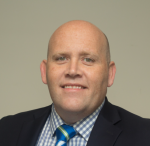
One of the first media pieces I wrote for The Boston Phoenix was about the declining number of reporters who were covering state government in Massachusetts. I spent some time in the press gallery at the Statehouse interviewing members of the shrinking press corps, including Carolyn Ryan, then with The Patriot Ledger of Quincy, now managing editor of The New York Times.
Although I can’t find the story online, I know this was in 1995 or thereabouts. The situation has not improved over the past 30 years.
Last week Gintautas Dumcius of CommonWealth Beacon, who definitely knows his way around the Statehouse, reported that The Associated Press’ Steve LeBlanc is leaving Beacon Hill after taking a buyout and is unlikely to be replaced. Although an AP spokesman said the wire service will continue to cover the Legislature, Glen Johnson, who’s a former AP Statehouse bureau chief, told Dumcius that it won’t be the same without someone in the building:
There’s no substitute for being physically present where news happens and in a statehouse, there’s few things more powerful than being able to confront a newsmaker in person and at times other than official events. That only comes from proximity to power….
Some of the biggest stories I got as a statehouse reporter came because I bumped into somebody unexpectedly or saw something that I otherwise wouldn’t have seen.
As Dumcius points out, the move comes at a time when two newspaper chains owned by hedge funds, Gannett and McClatchy, have dropped the AP as a cost-cutting move. It’s a vicious circle. An AP subscription is expensive. News organizations walk away. The AP is left with fewer clients and thus has to increase its prices even more or cut back on coverage. Or both.
Jerry Berger, a former Statehouse bureau chief for United Press International who’s now a journalism professor at Boston University, recalls a time when the AP and UPI competed fiercely for news about state government. In his newsletter, “In Other Words…,” Berger says:
The Massachusetts Statehouse Press Gallery used to be a rowdy and raucous place, where reporters for two wire services and outlets from around the state worked side-by-side, in fierce competition, to document the daily workings of Massachusetts government.
Today, you can hear a pin drop — and the echoes just got a bit louder with word the Associated Press no longer has someone stationed in Room 456.
While I continue on my trip down memory lane, I’ll observe here that The Daily Times Chronicle of Woburn, where I worked in the 1980s, got its Statehouse news from UPI. I used to do a bit of stringing for the agency, and I think I’m the only freelancer who ever wrote for UPI and got all the money that was due him. Today, as Berger notes, UPI is owned by a company affiliated with the Unification Church, once headed by the late Rev. Sun Myung Moon.
Fortunately, there are still multiple news outlets covering state government in Massachusetts, including The Boston Globe, State House News Service, CommonWealth Beacon, Politico, WBUR, GBH News and local television newscasts. Just last week on our podcast, “What Works: The Future of Local News,” Ellen Clegg and I interviewed Alison Bethel, the chief content officer and editor-in-chief of State Affairs, yet another statehouse-focused news organization that is rolling out a Massachusetts edition in partnership with State House News.
Still, it’s a far cry from when the Statehouse press gallery was full of reporters hanging on every word from governors, legislative leaders and reform-minded rebels — that last category something that has virtually disappeared. Maybe if there were a few more reporters at the Statehouse keeping tabs on what’s going on, there would be a few more rebels as well.
More on the AP
The Associated Press is in the news for two other reasons today.
First, editors of the influential AP Stylebook have announced that they’re sticking with the Gulf of Mexico, despite President Trump’s insistence that it be called the Gulf of America, but that they’re following Trump’s lead in referring to Alaska’s Denali mountain as Mount McKinley, as it had been known previously.
The reason, the AP explains, is that the Gulf of Mexico name goes back 400 years and that the body of water is international. Denali, by contrast, is entirely within U.S. borders, and the president has the right to change its name by executive order, as President Barack Obama did in 2015.
Second, a new documentary film claims that AP photographer Nick Ut did not take an iconic, Pulitzer Prize-winning picture of a Vietnamese girl running naked from an American napalm attack, an image that may have hastened the end of the Vietnam War. The AP vociferously disagrees, saying that its own investigation shows Ut was indeed the photographer. Poynter media columnist Tom Jones has the details (fourth item).


